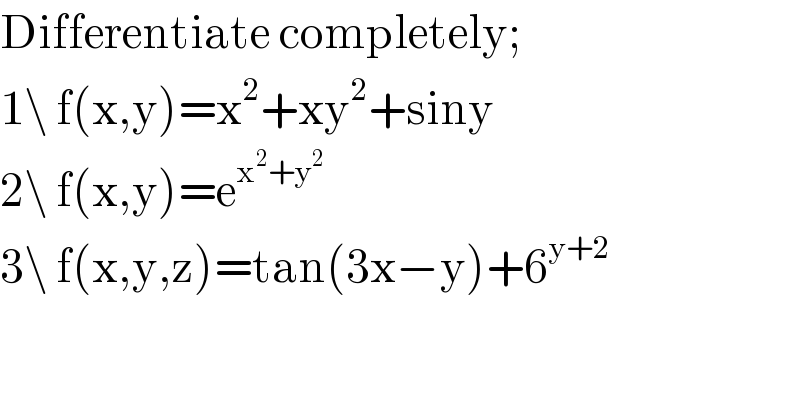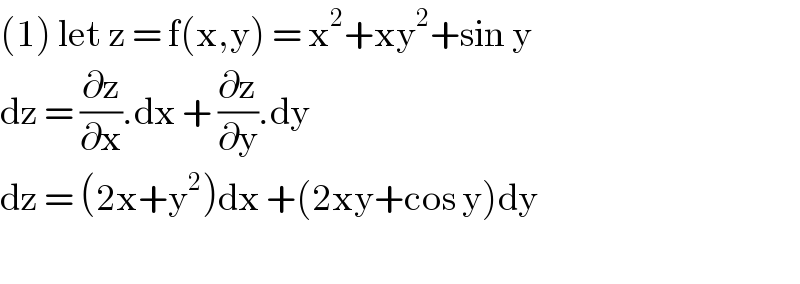
Question and Answers Forum
Question Number 93477 by Ar Brandon last updated on 13/May/20

Answered by Rio Michael last updated on 13/May/20

Commented by Ar Brandon last updated on 13/May/20

Answered by john santu last updated on 13/May/20

| ||
Question and Answers Forum | ||
Question Number 93477 by Ar Brandon last updated on 13/May/20 | ||
 | ||
Answered by Rio Michael last updated on 13/May/20 | ||
 | ||
| ||
Commented by Ar Brandon last updated on 13/May/20 | ||
 | ||
Answered by john santu last updated on 13/May/20 | ||
 | ||
| ||